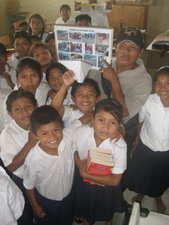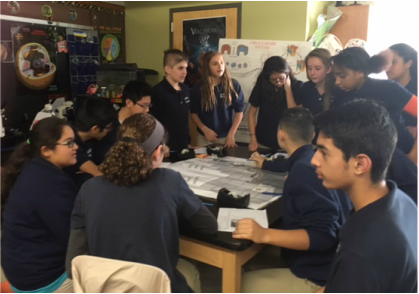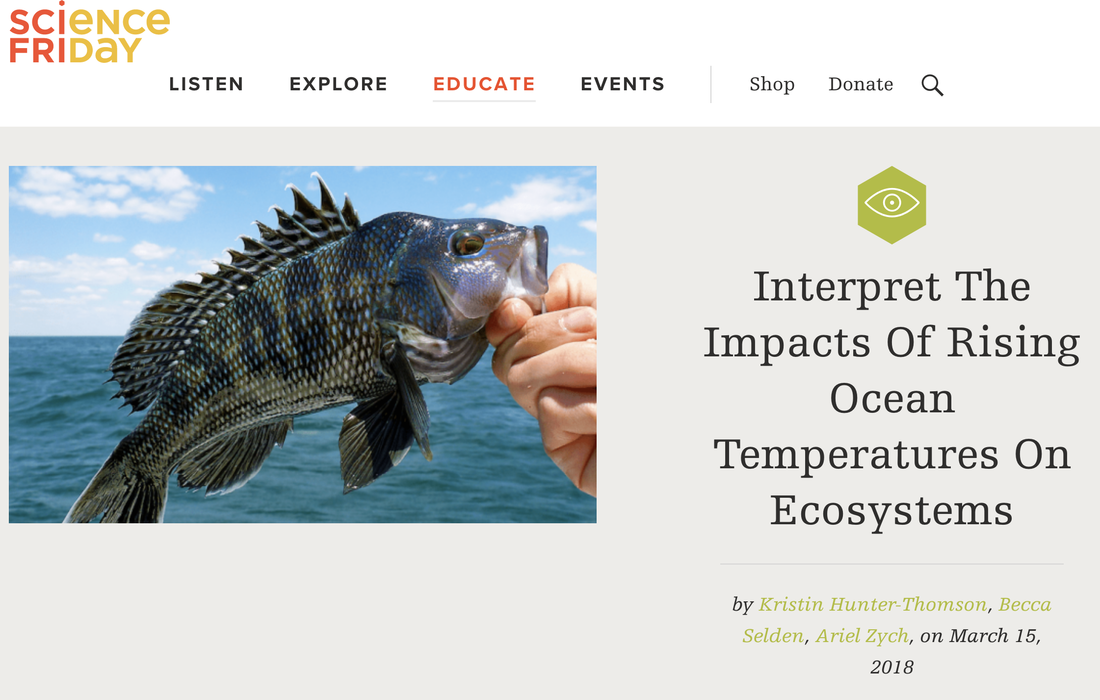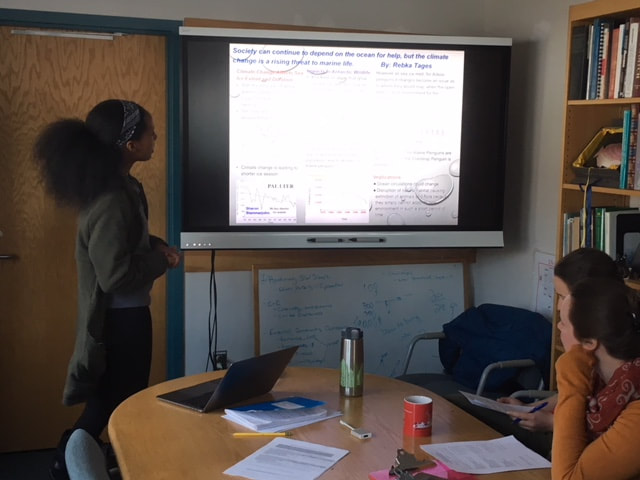I strive to inspire youth and young adults to be passionate about marine ecology and conservation. To that end, I have organized outreach efforts throughout my career to educate students about issues in marine conservation and developed curriculum to help them bring those messages back to their communities.
Engaging students in sea turtle conservation

During my year abroad examining the ways in which local communities are involved in and affected by sea turtle conservation efforts, I organized several outreach projects in the local schools. In Malaysia, I taught school children about sea turtles and the beach conservation efforts ongoing in their community. In the image above, we're playing Kakak Kata (translated from Malay as Sister Says, a game I developed as a variation on Simon Says) where we act out the various parts of the sea turtle life cycle on command. The overwhelming favorite was "grow" pictured above. In Panama, I worked with the sea turtle monitors from their local communities to teach elementary school children about turtle conservation (pictured on right).
Inspiring New Jersey high schoolers to pursue careers in marine science

As part of my NSF OCE post-doctoral fellowship, I have created a student learning module based on my research for the 4-H Youth Development Summer Science Program at Rutgers. The program brings high school students from around New Jersey to Rutgers for a week-long science immersion. In collaboration with staff at the Department of Marine Science Education and Public Outreach program, we developed an interactive game to show how fish move in response to changing temperatures based on species-specific differences in thermal preferences. The game was based on observed data on thermal preferences of fish from NOAA trawl surveys and observed and projected temperature changes in the Northeast US Large Marine Ecosystem. The students in my group then taught their peers the game during the last morning of the program, and the students have brought the activity back to their communities as "science ambassadors" (pictured on the right).
The Summer Science program and our particular module was highlighted by NJ.com
In Fall 2018, I developed a marine science internship for New Brunswick High school seniors focused on the impacts of climate change on marine ecosystems. The students presented their findings in a poster session at Rutgers University.
The Summer Science program and our particular module was highlighted by NJ.com
In Fall 2018, I developed a marine science internship for New Brunswick High school seniors focused on the impacts of climate change on marine ecosystems. The students presented their findings in a poster session at Rutgers University.
Partnering with Science Friday to increase awareness of marine climate change

I teamed up with DataSpire's Kristin Hunter-Thomson to develop an educational resource with Science Friday's educational director Ariel Zych. The resource teaches 7-12th grade high school students to interpret the impacts of warming oceans on marine ecosystems. Check it out at:
https://www.sciencefriday.com/educational-resources/interpreting-the-impacts-of-rising-ocean-temperatures-on-ecosystems/
The ocean is changing. As it changes, the ecosystem and the species within the ocean are impacted, sometimes in surprising ways. This is a story about how some of those changes—in temperature, where fish populations live, and the fishing communities that rely upon them—could play out along the Atlantic Coast in the next century. It’s also a story about making predictions and using evidence from data. Here’s how it’s going to work:
https://www.sciencefriday.com/educational-resources/interpreting-the-impacts-of-rising-ocean-temperatures-on-ecosystems/
The ocean is changing. As it changes, the ecosystem and the species within the ocean are impacted, sometimes in surprising ways. This is a story about how some of those changes—in temperature, where fish populations live, and the fishing communities that rely upon them—could play out along the Atlantic Coast in the next century. It’s also a story about making predictions and using evidence from data. Here’s how it’s going to work:
- Read a story from the docks of New England: What’s changing?
- Meet a scientist and think like one: How do we collect data on the oceans?
- Think like a fish: Use data to model changes in fish populations.
- Make predictions: Use your model to make predictions and inform the community

